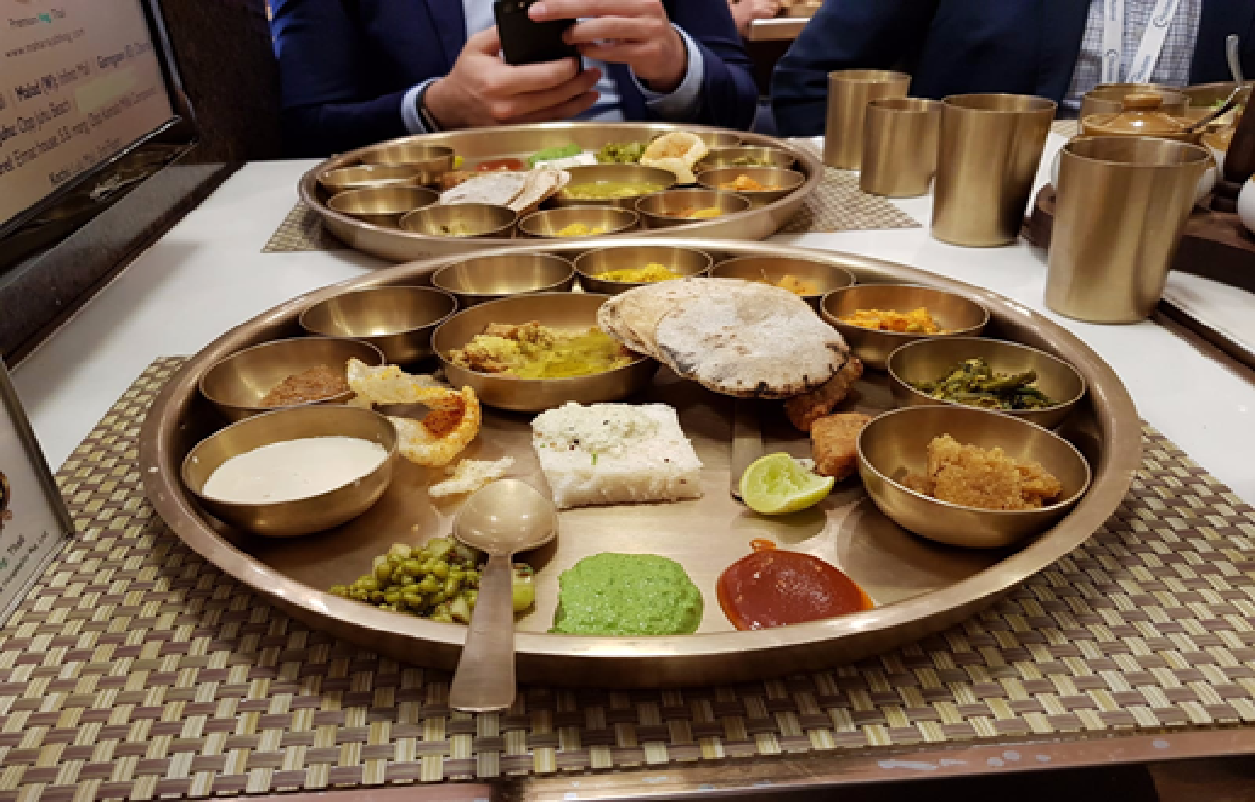Grassroots Tour of India - Final Day
For those that missed the insights of Day 1 and 2, please click on the following links Grassroots India Tour – Day 1 and Grassroots India Tour – Day 2. For the final day of our India tour, we were back in Mumbai. The day kicked off with a tour around Mumbai to see how the city is transforming. Delegates also got to meet with the Reserve Bank of India, Government officials, taste some local delicacies and visit a local retail bank.
Reserve Bank of India
We met with Dr Mridul Saggar, Director Prices and Monetary Research who explained to the delegates the RBI’s role and responsibilites. The key points were;
- Monetary Policy: The key objectives for the central bank is inflation targeting through monetary policy. They also focus on preventing excess volatility of the currency, despite the Indian Rupee being able to freely float. The RBI has increased FX reserves substantially over the last few years and India is no longer considered a fragile 5 economy.
- Non-Performing Assets: Over the last few years, Indian banks have been under NPA stress, particularly in the public sector banks. When asked about their stance on this, they felt some consolidation of Public Sector Banks would be positive for the banking system. However, they stated this will be left to economic forces and company management rather than a directive from them. They have also identified 25 large, non performing, accounts across banks that need to be resolved. The resolution process is being pushed by the RBI to recognise and deal with bad assets now rather than kick the can down the road. They were positive on the Government’s bank recapitalisation program of injecting US$32bn and said this is a step in the right direction. Banks will be faced with closer supervision and enhanced capital requirements.
- Capital Adequacy and Bank Strength: Unlike Australia where APRA regulates the banks, the RBI is responsible for bank regulation. Officials were very confident on the strength of the banking system, despite the NPA issues. Mridul explained that the banking system has never had a deposit run and that confidence in the system by depositors and investors remained steadfast. Like global practices, India has identified 3 banks that are considered Domestically Systemically Important Banks (D-SIB’s) that are critical to the functioning of the Banking system. These banks are currently State Bank of India, HDFC and ICICI.
ICICI Bank Branch
On our way to our next meeting we found time to stop off at one of Mumbai’s busiest bank branches (ICICI Bank at Prabhadevi). The branch visit highlighted the speed of advancement of India’s Banking system when it comes to client engagement and technology. We saw firsthand the use of Aadhar (India’s biometric system) as the bank can initiate the know your client process and open new bank accounts for customers electronically and in as little as 5 minutes through fingerprint scans. The visit to the branch highlights the potential for growth from basic areas like opening bank accounts and increase in digital transactions.
Local Delicacies
On the way to our next meeting we stopped over at a local restaurant for lunch. We wanted to give the delegates a taste of lndia that they were not accustomed to, which meant there was no Butter Chicken, Vindaloo or Lamb Rogan Josh! Maharaja Bhog is a vegetarian restaurant chain well known for their authentic Rajasthani and Gujarati dishes in a Thali (a selection of curries served on a platter) which you can see below.

Department of Investment & Public Asset Management
Our final meeting of the tour was with the Department of Investment and Public Asset Management (DIPAM), which is a division within the Ministry of Finance of the Government of India. DIPAM is responsible for the disinvestment of Central Public Sector Enterprises (CPSE) by the Government of India. Our presenter was Dr. Bhushan Kumar Sinha, Economic Adviser at DIPAM, Ministry of Finance, Government of India. He presented the case for investment in India and how the government was wooing large sovereign and institutional investors from all over the world.
CPSE’s account for 16% of GDP and 11% of market capitalisation and are dominant in capital intensive sectors such as energy, metals and mining, power and infrastructure. There are 244 CPSE’s listed in India and the Government is seeking broadly to exit or reduce the holdings in non-strategic businesses and promote efficiency and professional management of such companies. The hope is that this will unlock the economic potential of legacy businesses as well as provide funding for the government to spend more on infrastructure, education and manufacturing. We feel this is a positive move by the Government, as capital can be allocated more efficiently and it signifies a big difference from China, where many corporations are Government owned or controlled.
Night Activities
After an action packed 3 days of several meetings and travel, it was time to bring the very successful tour to an end. Whilst many delegates had flights to catch, a few of us enjoyed the local night markets as well as having a few beverages at the local night scene to witness India’s consumption. Fittingly, we visited Bar Stock Exchange, where customers buy drinks at different prices as they fluctuate like the stock market! (see below)

Tour Summary
The trip provided many on the ground insights on India’s progress as a future economic powerhouse. The key points were;
- India appears to be well positioned from a long-term investment perspective, with fundamental tailwinds of demographics and resulting infrastructure needs. Whilst a lot of development is needed, the investment opportunity is immense
- Corporates in India appear well managed and are articulate in their strategy. The growth opportunity seems largely linked to demographics, formalisation and inclusiveness
- Manufacturing plant visit was an exceptional experience which highlighted the advancement in this area by Indian firms. The client base of these firms is increasingly more global, taking away from the India exposure thematic, but also opening the potential of selling to a much bigger audience
- Even when visiting the slums of India, it is apparent that entrepreneurship is thriving, and people are aspirational, positive and dreaming about a better future
- Technology firms have a huge advantage in India, given access to some of the brightest minds locally. These businesses can grow substantially from “newer industries” having fulfilled more an outsourcing role previously
- The RBI is highly conscious of its objectives of ensuring an inflation target is adhered to and ensuring the stability of prices and the financial system. They are a very credible central bank and are dealing well with the NPA issue that currently plagues the public sector banks
- Banks are likely to be set for a strong period of credit off-take. Particularly if demand picks up in the post-election period of 2019, it is likely that private banks in particular will be able to increase their asset book as well as grow earnings through more accounts, more services and increase use of technology platforms
4 topics

